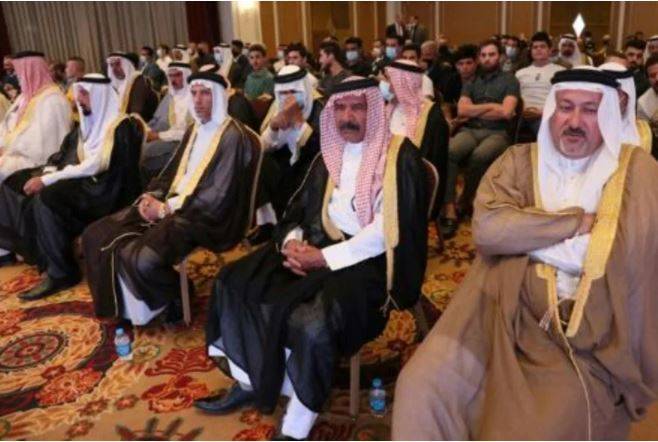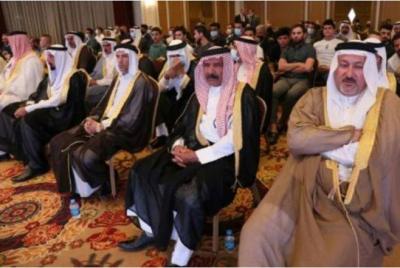More than 300 Iraqis, including tribal leaders, called for normalization between Iraq and Israel during a conference sponsored by an American organization in the Kurdistan region, marking the first such appeal of its kind and prompting official and party backlash on Saturday. The government, presidency, and various political factions expressed their rejection of the conference organized on Friday evening by the "Center for Peace Communications," based in New York, which addressed the issue of normalization between Israel and Arab states as well as the rapprochement between civil societies.
Kurdistan, an autonomous region in northern Iraq, maintains friendly relations with Israel, standing in stark contrast to the positions of Iraqi officials and political factions loyal to Iran, Israel's arch-enemy, which holds strong influence in Iraq. Joseph Braude, an American expert of Iraqi Jewish descent and founder of the "Center for Peace Communications," told AFP that around 300 participants from Sunni and Shiite communities gathered in Erbil, the capital of Kurdistan, encompassing six provinces: Baghdad, Mosul, Salah al-Din, Anbar, Diyala, and Babylon. Braude mentioned that tribal leaders, intellectuals, and writers from these provinces also participated.
In the final statement of the conference, read by Sahr Al-Tai, an employee at the Ministry of Culture in Baghdad who introduced herself as the head of a women's organization, it was stated, "We demand to join the Abraham Accords." The statement added, "As the accords stipulate the establishment of diplomatic relations between the signing parties and Israel, we also demand normal relations with Israel and a new policy based on civil relations with its people for the sake of development and prosperity." The "Abraham Accords" were signed under Washington's sponsorship in September 2020 to normalize relations between Israel, the UAE, and Bahrain, followed by Morocco and Sudan.
Al-Tai, who heads an organization against violence towards women and was one of the speakers at the conference, emphasized, "No force, whether local or foreign, has the right to prevent us from making such an appeal." Among the Iraqi speakers was a former general and leader of the "Awakening," a tribal faction that fought extremist Islamic organizations with U.S. support. Israeli figures also spoke, including Chemi Peres, who heads a foundation established by his late father, former Israeli President Shimon Peres.
Sheikh Risan Al-Halbousi, chief of the Al-Bumatar tribe from Anbar, told AFP, "We have had enough of enmity, divisions, and killings. We must open a new page for cooperation, peace, and security so that our children and grandchildren can live in peace and safety. You cannot convince citizens overnight of normalization with Israel... over time, ideas change."
In recent decades, many Kurdish leaders in Iraq have visited Israel, and Kurdish politicians have openly called for normalization. In 2017, when Iraqi Kurds held a controversial independence referendum, Israel was among the few supporters. The Iraqi government condemned the "illegal meetings" that "do not represent the people of the Iraqi cities that these individuals are desperately trying to speak for." The presidency, held by Kurdish leader Barham Salih, also condemned calls for normalization with Israel.
Prominent Shiite cleric Muqtada al-Sadr went further, calling on the government to "criminalize and arrest all those who attended." Meanwhile, MP and spokesman for the Al-Fateh Alliance, Ahmed Al-Asadi, described the conference’s outcomes as an "egregious act." Al-Asadi stated on social media, "Anyone who planned or participated in this meeting is a traitor under the law and must be prosecuted and face the harshest penalties." The Iraqi Ministry of Culture also expressed its rejection of the conference, affirming its adherence to the Iraqi government's stance and the people’s opposition to normalization, while confirming that Sahr Al-Tai "(does) not possess any capacity to speak on behalf of the ministry but participated in the conference as a member of one of the assemblies."




